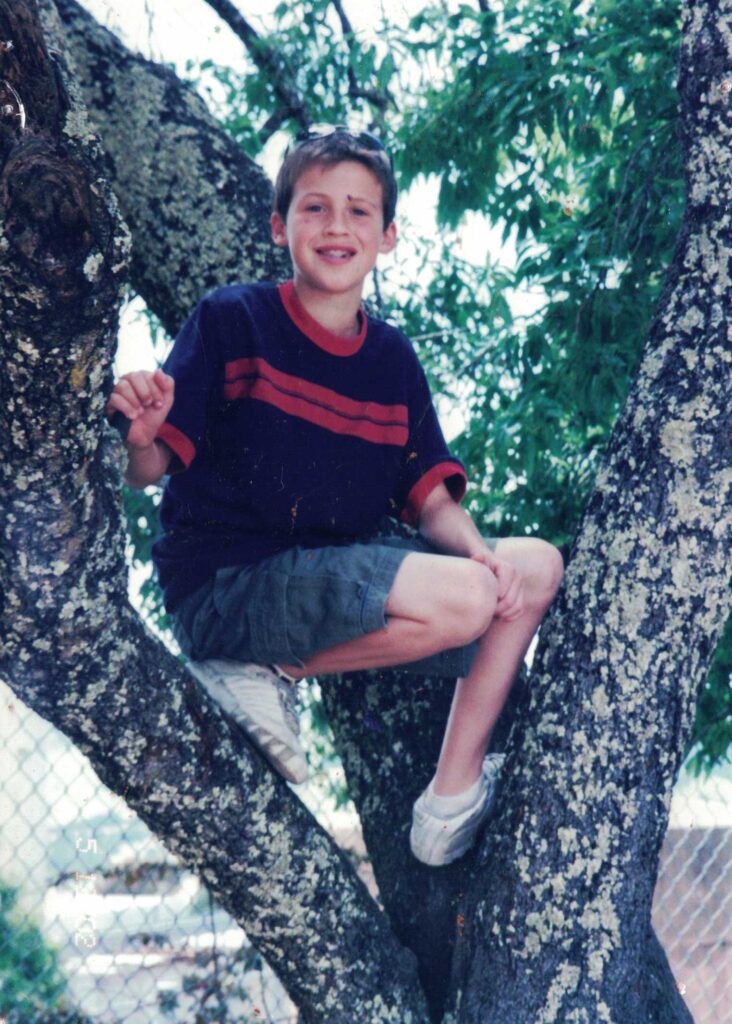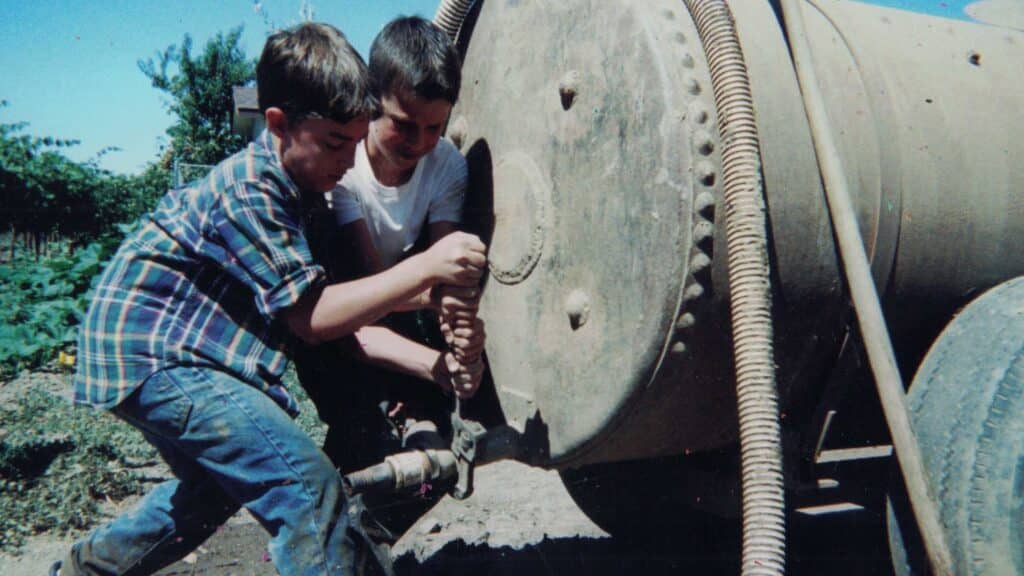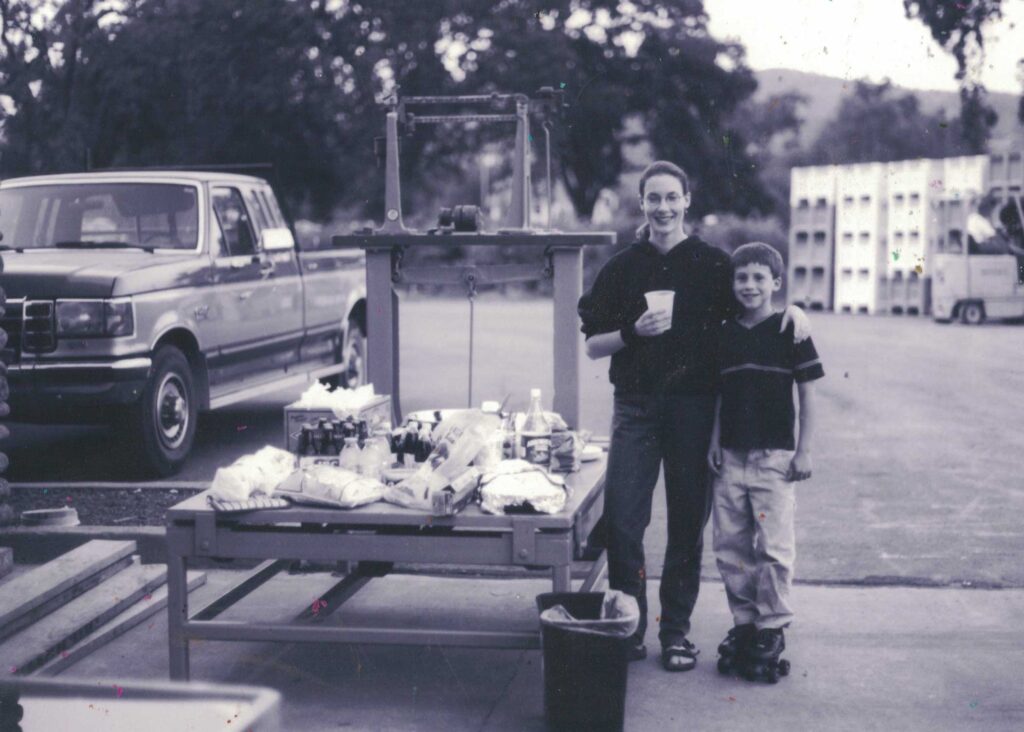
As the 4th generation of Robert Biale Vineyards, I feel a deep sense of responsibility and pride in continuing our family’s legacy of winemaking and stewardship of the land. It’s hard to convey just how special it was to grow up working in the vineyards with my family. Sure, there were times where I wished I was playing with my friends instead of spending my weekends and Summers in the vineyard, but looking back on my time spent among the vines, I remember the cool, quiet mornings, the smell of the dirt, the feeling of the vines in my hands as I worked through them. Preserving our ability to care for this land is at the heart of what we do, or at least it’s what I care about.
Our journey began in the 1930s when my great-grandfather, Pietro Biale, planted Zinfandel vines on our ranch in Napa, despite the challenging times that followed Prohibition. Little did he know that his actions would lay the foundation for a family legacy that would span generations.
Tragedy struck when Pietro passed away, leaving my great-grandmother, Cristina, and my grandfather, Aldo, to navigate the complexities of the farm. It’s worth noting that Aldo was just 14 years old at the time, right around the same age I was when I got in trouble for seeing how fast the Kubota tractor could drive down El Centro Avenue. Their determination and tenacity helped them persevere, nurturing not only the Zinfandel vines but also walnuts, prunes, an assortment of fruits and vegetables, and a gaggle of chickens. It was during this period that Aldo learned the art of winemaking from his uncle Angelo, setting the stage for our family’s connection to the land and the birth of a unique wine–Black Chicken Zinfandel-which would become the legendary flagship wine for Robert Biale Vineyards in years to come.
Fast forward to the present, and our commitment to preserving the land is stronger than ever. Our vineyards are certified through the Fish Friendly Farming/Napa Green Program, reflecting our dedication to sustainable and environmentally friendly practices. From composting and planting cover crops to employing a natural weed removal process, we prioritize the health of the land and its biodiversity.
Here’s a little-known fact about how we choose to care for our vineyards: In any given season, a single vine might be touched by one of our hands at least two-dozen times. That means we’re walking down each row, carefully inspecting each vine, each shoot, each cluster, and doing our best to ensure we enable these vines to produce the best, most authentic wine possible. We like to joke that “we’re farmers who make wine.”
Our connection to the land runs deep, and it’s not just about the wine. From my earliest memories, I remember spending summers and weekends with my father and grandfather, working the land and nurturing the vines. While most people have memories of playing catch or traveling or running around with their parents and grandparents, I have memories of walking behind the rusty, orange Kubota at 5am while Aldo drove through the vineyard looking for vines that needed watering. When we found one, I would grab my two five-gallon buckets, fill them up with water from the 300-gallon tank he was towing and carry those two buckets 5, 10, sometimes 30 yards down the row to water these young vines. I remember how mad he and my dad would get if I tripped on a vine and let the water spill out. At the time, I just remembered the anger. But looking back on it, I think about how important it was to Aldo and Bob to teach me that it’s our job to look after this land and not to waste it. I still remember the anger though.

As we look to the future, we remain humbled by our family’s heritage and the journey that has brought us here. Our story is one of resilience, passion, and above all, a deep connection to the land that sustains us. With every bottle of Biale Zinfandel poured and every vine tended, we honor the legacy of our family and embrace the responsibility of being stewards of the land for generations to come.

In the words of our founders, “We consider ourselves part farmers, part winemakers, and part historic preservation society.” This sentiment embodies the spirit of Robert Biale Vineyards—a spirit that cherishes tradition, embraces innovation, and above all, upholds the timeless value of stewardship of the land.